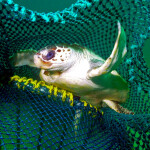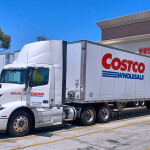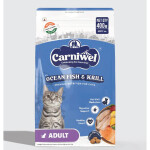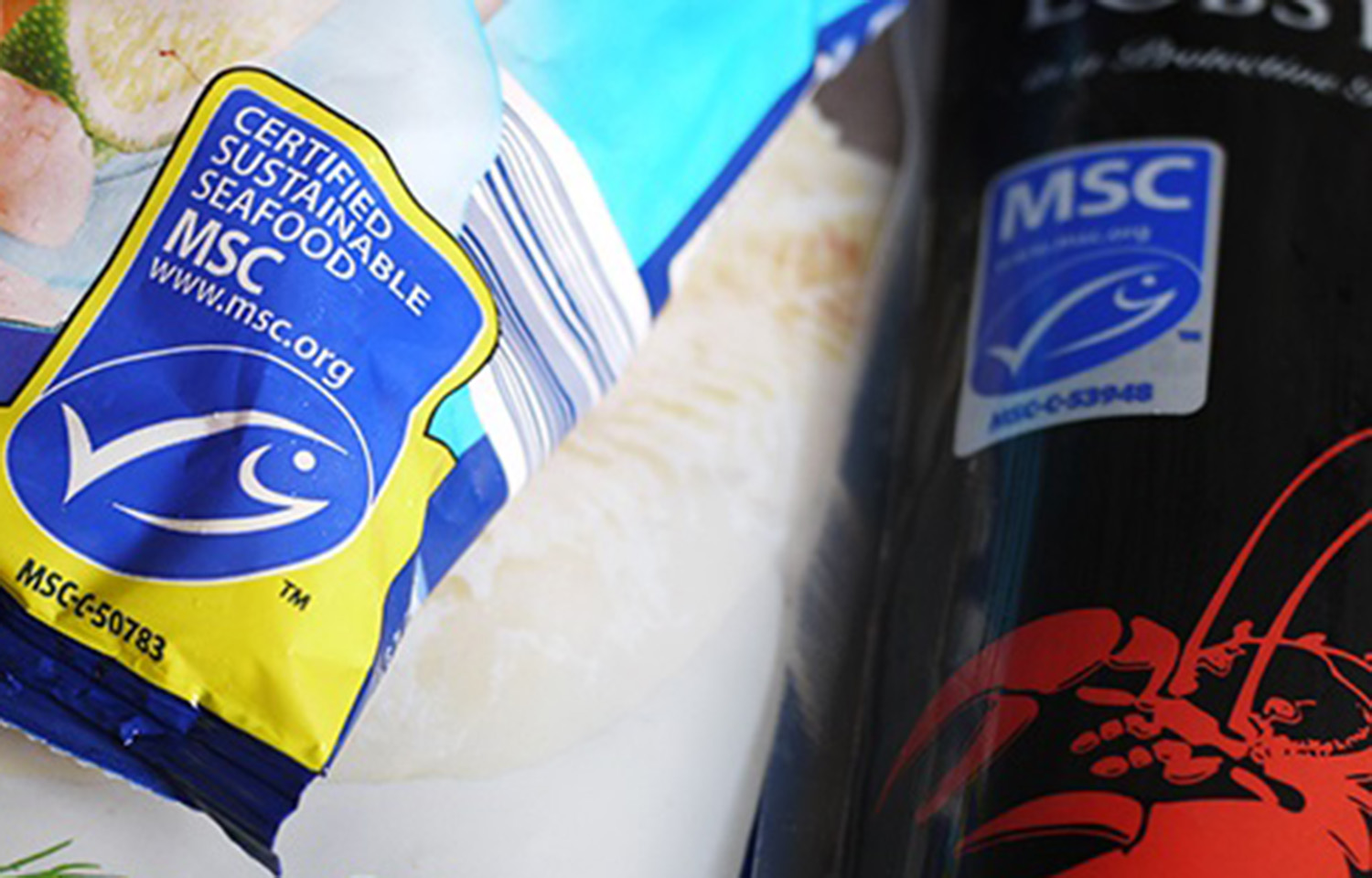A series of lawsuits related to sustainability claims and eco-labels have changed the seafood industry’s approach to marketing sustainability bona fides, with lawsuits filed against Walmart, Mowi, Gorton’s, ALDI, Conagra, Bumble Bee Foods, and Red Lobster either pending or resorting to settlements.
The suits should be a wake-up call to the seafood industry that it needs to change its marketing practices, according to Arlin Wasserman, the founder and managing director of seafood industry consultancy Changing Tastes. Wasserman, who was previously the vice president of sustainability at foodservice provider Sodexo, said the suits have fundamentally altered the calculus of whether eco-labels are still worth using.
“There are a lot of seafood companies relying on third-party certifications as the basis for claiming their products are sustainable, and many large retailers and foodservice companies do the same. Now that the first cases have been found to have merit and have not been dismissed – which took substantial time and money on behalf of the plaintiff lawyers to prove – it’s cheaper and less risky for additional lawyers and lawsuits to file,” Wasserman told SeafoodSource. “Once there is a ruling that finds a company guilty of false advertising, every other company that relies on the same certification will be at substantial risk of being sued. That is unless the industry starts changing its practices before the ruling occurs, and that’s both advisable and far from certain.”
Though several lawsuits have directly challenged the Marine Stewardship Council (MSC), the Aquaculture Stewardship Council (ASC), and the Global Seafood Alliance’s Best Aquaculture Practices eco-labels – alleging the programs are making fraudulent claims because the seafood on which the programs’ logos appear is not actually sustainable – no eco-label has been deemed by a judge to contain deceptive marketing claims thus far. Most recently, in the suit against Walmart, the judge in the case ruled the MSC Blue Tick logo signifies only that the product meets the organization’s sustainability standards, “so it is not actionable as a deceptive or misleading statement by Walmart.”
The more problematic claims, in terms of liability, have been self-made claims, such as Walmart’s “Sustainably Sourced – 100%” label or Conagra’s “We have full traceability of all our fish.” Mowi, the world’s largest salmon producer, paid a USD 1.3 million (EUR 1.2 million) settlement and agreed to remove the terms "sustainable" and "eco-friendly" from some of the products it sold in the United States. Gorton’s and ALDI also settled and changed their advertising.
Recent legal rulings have “shifted the burden of proof to the industry,” requiring companies’ sustainability claims to be entirely truthful and backed by science, according to Wasserman.
“In general, many current sustainability claims don’t meet those criteria,” Wasserman said.
Eco-labels have become a liability, Wasserman explained, because they don’t meet the high burden of proof required to make sustainability claims that stand up to strict scrutiny.
“Companies should be very scared if they are relying on a certification or eco-label that is being used today based on the promise of better practices in the future – also known as certification with conditions,” he said. “This same promise of ‘market reward now for better performance later’ is also part of the effort around many wild fishery improvement projects (FIPs) and aquaculture improvement projects (AIPs). That’s entirely different than other common certification standards and programs like kosher or organic where the standards must be met before, or by the time, the logo is placed on the package.”
Irvington, New York, U.S.A.-based law firm Richman Law and Policy, which is behind many of the false claim lawsuits against companies using eco-labels on their seafood products, said it will continue to pursue legal action until seafood marketers “provid[e] accurate information to consumers concerning the environmental and animal welfare impacts of [the industry’s] supply chains.”
“The seafood industry knows it will sell more products when those products are labeled with environmental or animal welfare claims – even if those claims aren’t completely accurate – and, absent this type of consumer protection litigation, there is no way for the industry to be held accountable when those claims are false or misleading,” Richman Law Animal Welfare Legal Fellow Brooke Dekolf told SeafoodSource. “Our consumer and nonprofit clients hope that when companies make or modify claims concerning environmental and animal impact that those companies are diligently working to ensure that those claims are substantiated and align with consumer expectations. While, unfortunately, it doesn’t seem that many companies are working to legitimately substantiate their claims, we hope that there are good actors taking these claims as seriously as consumers do.”
Wasserman said it’s only a matter of time before a judge declares the use of a seafood eco-label to be a false or misleading marketing claim.
“Popular certifications like MSC and ASC grant certifications with conditions, and that is a practice that is creating liability for the firms that use them and rely on them for marketing to consumers,” he said. “It’s the customer – whether that’s a grocer like Kroger, a foodservice company like Sodexo, or a manufacturer that uses them in their marketing – that is creating the risk for themselves. If they require a certification, presumably, they know what they’re asking for.”
Instead of using eco-labels, retailers should use marketing claims they know are true, by including such statements as, “We do not use any antibiotics to farm our seafood,” or “Seafood is known to have a lower carbon footprint of seafood compared to many other animal proteins” on their packaging.
“The first companies to break from relying primarily on achieving certifications – now commonplace among many companies – may find they’ve suddenly gained entry to new buyers and markets and changed the market dynamics in their favor,” he said. “Also, once one or two big buyers change their reliance or requirements for certification, it may drive out a lot of complexity, conditionality, and acceptance of risk from our industry, along with days and weeks of meetings to make sense of the current system.”








